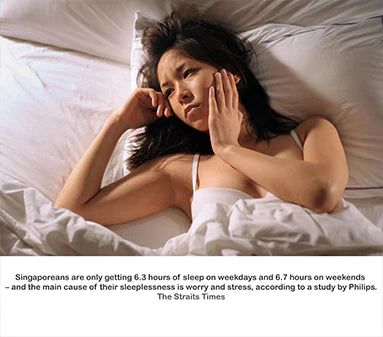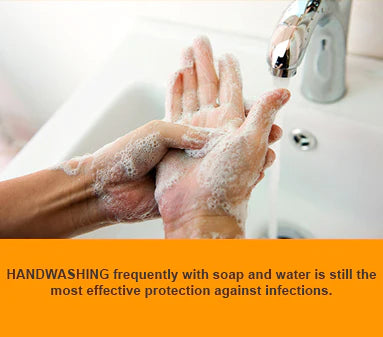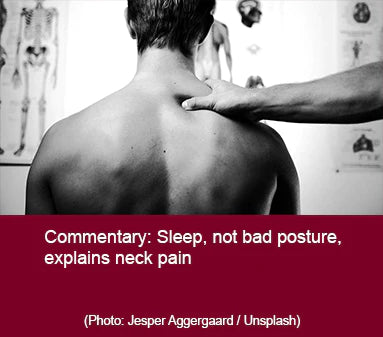– and yes, stress is what’s keeping them up at night
Sleepless in Singapore? You’re not alone.
According to a new study, 39 per cent of Singaporeans said that their sleep has worsened in the past five years. And the nasty sleep-snatchers? Stress and worry, of course.
Philips’ 2019 sleep study published on Thursday (March 14) found that Singaporeans are among the world’s worst sleepers, averaging only 6.3 hours of sleep on weekdays and 6.7 hours on weekends. This is lower than the global average of 6.8 and 7.8 hours respectively.
According to Philips, experts recommend getting at least eight hours of sleep daily.
Seven in 10 Singaporeans described their sleep as “somewhat well” or “not well at all”, with 65 per cent of respondents saying that they experienced several episodes of daytime sleepiness throughout the week.
Three in five respondents also said that they wake up at least once during the night, Philips said. The survey involved over 11,000 adults in 12 countries – including 750 Singaporeans – during the month of January.
It found that the main reasons keeping Singaporeans up at night are none other than worry and stress. A total of 61 per cent of Singaporean respondents attributed their sleeplessness to worry or stress, higher than the global average of 54 per cent. Around 35 per cent said their lack of sleep was caused by their sleeping environments.
Getting distracted by entertainment mediums such as TV and social media (30 per cent), a partner’s snoring (14 per cent), and one’s own sleep schedule (10 per cent) are the other causes of sleeplessness, the study found.
Seeking help from Dr. Internet
The majority of Singaporeans surveyed said they are trying a variety of methods to try and solve the issue of sleep elusiveness – but for many, getting medical help is not one of them.
The study found that 80 per cent of respondents have not sought help from a medical professional, primarily because they think sleep consultation and treatment fees are too expensive.
However, around 41 per cent of Singapore respondents said they are open to the idea of seeing a sleep specialist.
But more people, or around 43 per cent, said they are open to educating themselves on the topic and to look for remedies to improve sleep quality by hopping on the Internet.
Other ways used to combat sleeplessness are: setting a fixed sleep schedule (28 percent), reducing caffeine intake (25 per cent), playing soothing music (19 per cent), and even sleeping in a different place, away from one’s partner (12 per cent).
It may be a good thing that 81 per cent of respondents said they wanted to improve their quality of sleep, given the fact that sleep deprivation poses multiple health problems.
“The lack of quality sleep may not only induce low productivity and daytime sleepiness, but also pose serious health issues if not addressed,” Mark Aloia, the global lead for behavior change, sleep and respiratory care at Philips said.
“Those who suffer from prolonged poor sleep should consult their doctor to identify contributing factors and determine if they or their partner are at risk of underlying health issues such as obstructive sleep apnea,” he added.
Sleep apnea is a disorder which causes one’s breathing to repeatedly stop and start while sleeping. According to a separate study from 2016 cited by Philips, one-third of Singaporeans suffer from this disorder, but 91 per cent have not been diagnosed.




Laat een reactie achter
Deze site wordt beschermd door hCaptcha en het privacybeleid en de servicevoorwaarden van hCaptcha zijn van toepassing.